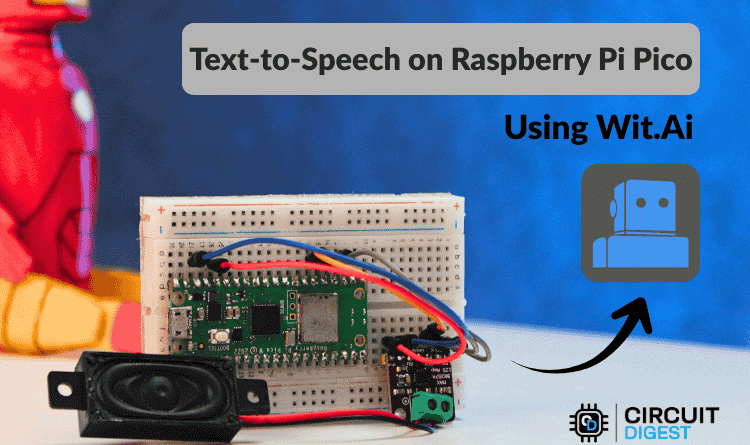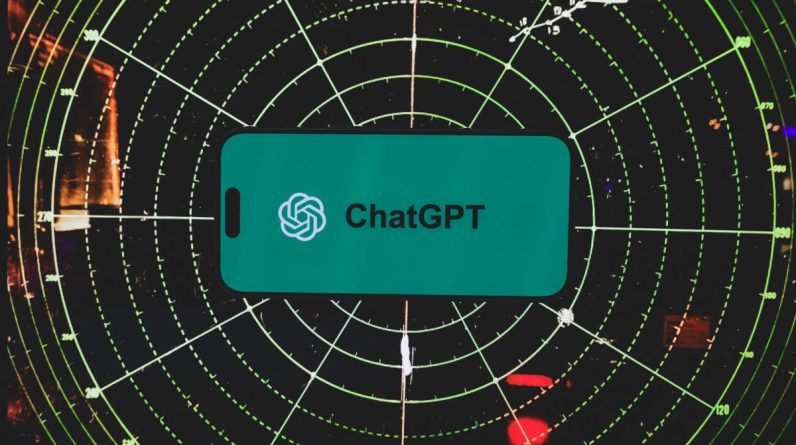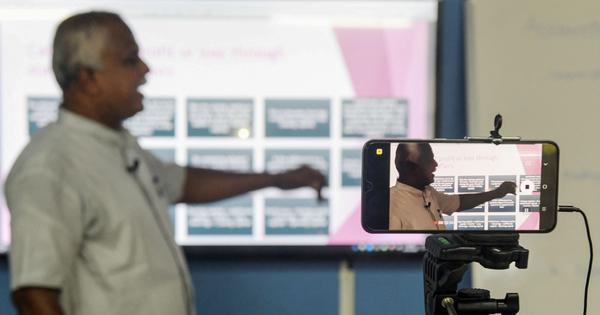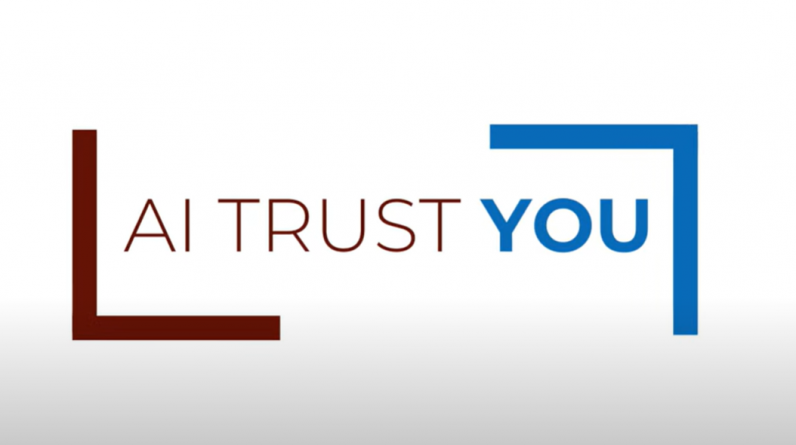
The Laguna Beach Unified School District (LBUSD) has recently launched AI Trust You, a Google Chrome extension designed to bring clarity and accountability to AI usage in classrooms.
The tool, developed in-house by the district itself, aims to foster honesty and alleviate anxieties surrounding AI in education. It essentially works as a dropdown menu option in Google Docs that allows teachers to set parameters around AI use for specific assignments, and then lets students document which AI tools they used, and to what extent.
“I don’t want my teachers to be spending time trying to catch kids cheating,” says LBUSD Chief Technology Officer Michael Morrison, who oversaw the two years of development for AI Trust You. “That’s the opposite of why they got into teaching.” Having this tool helps teachers be clear about their expectations and students be clear about their AI usage, which reduces stress for both.
You may like
Since formally launching AI Trust You within LBUSD in January, the district has made it available for free to school systems across the nation. At last check, the extension is already being used by 47 districts and 600 teachers, although those numbers increase every week.
“We had one person from New Jersey who said that when she showed it to the principals this one high school principal got the chills,” says Morrison. “I think it’s more that they realize they’ve been dealing with this issue with their teachers, and their teachers are frustrated, and it’s a pain point for everyone. So I think we’re addressing that in a unique way with this.”
Getting Started With AI Trust You
Anyone who is interested can go to the AI Trust You home page for a demo, and to sign up to get started.
The beauty of AI Trust You is its simplicity. Once installed, the extension is accessed via dropdown menu for any assignment through Google Docs.
For teachers, they start by selecting from the four AI technique categories—Content Creation, Content Understanding, Research Assistance, and Audio-Visual Generation—to specify how students are allowed to use AI on a particular assignment. The tool generates a clear assignment guideline text for students, so expectations are transparent.
(Image credit: Laguna Beach USD)
From the student perspective, they select the AI tool or tools they use while working, and identify the techniques and the percentage of their work that was AI-assisted.
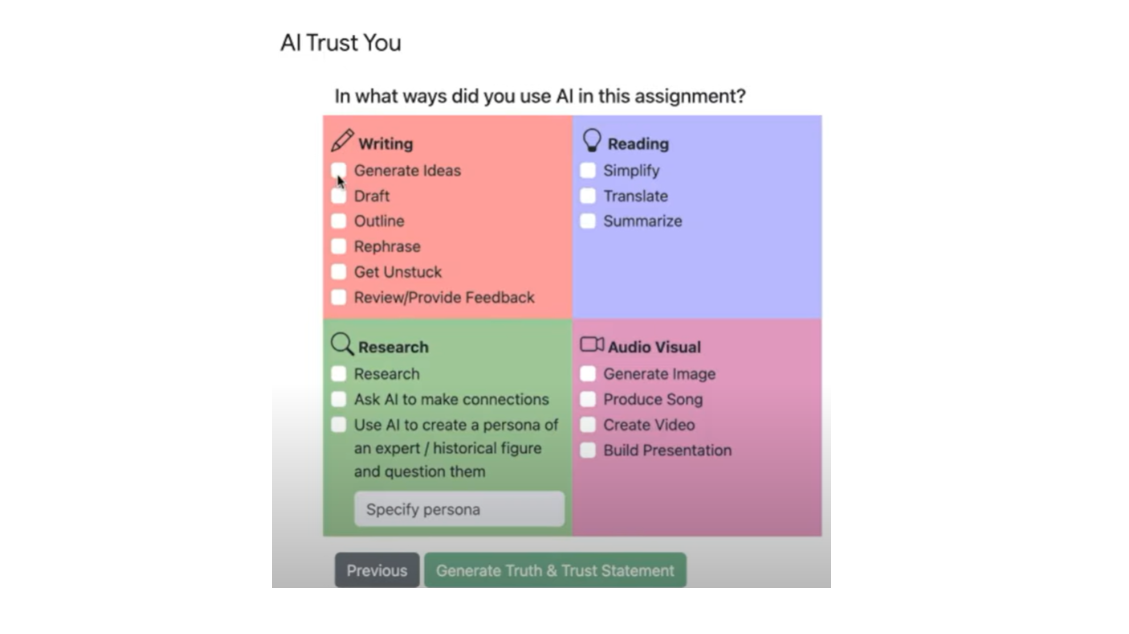
(Image credit: Laguna Beach USD)
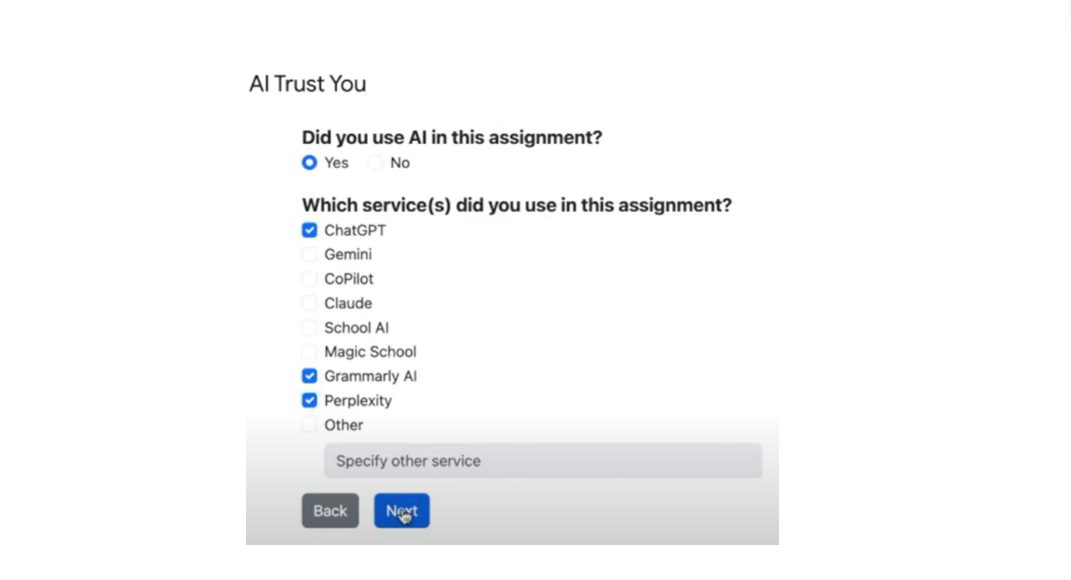
(Image credit: Laguna Beach USD)
AI Trust You then generates a citation documenting exactly how AI was used for that assignment, which the student can then paste into their work, either at the end or wherever it’s required.
Success So Far
Although it’s only been in use a relatively short time, the tool seems to be working as intended, especially in regard to transparency.
“In one classroom, we had the teacher make all the kids use it, and then the teacher sat down with each kid and looked at the results,” says Morrison. “They went over what the kids said they used it for, where and how it was used in that assignment, and incredibly, it was right on accurate! The teacher said, ‘I could not believe how honest they were about how they used it.’ I think it proved to show that kids want to be honest, and given an opportunity, a lot will be. It’s pretty cool to see.”
AI Trust You is not designed for every assignment, Morrison cautions, but for key ones in which teachers want to be clear about AI usage.
“I can picture teachers saying, ‘No, don’t use AI at all,’ right? And that’s appropriate at certain times,” he says. “I think teachers need to think about being more intentional about what they expect from kids with a specific assignment.” He suggests using AI for research isn’t all that different from using Google, so AI Trust You at least allows students to document the research process.
Improving School Culture
As mentioned, the extension itself is free, and will remain so, says Morrison. The district is working on providing a way to monitor stats on usage, for which it will charge to recoup development costs. To protect student privacy, no personal data is collected. Any information tracked is around the actual platforms used.
Ultimately, AI Trust You has lessened student apprehension about using AI, and reduced teacher suspicion around potential cheating–a big win-win as far as Morrison is concerned.
“I think this has the potential to make our school culture better,” he says. “And that’s a pretty hard thing to accomplish with other tools, and this is so simple. I feel like it’s almost a no-brainer.”


